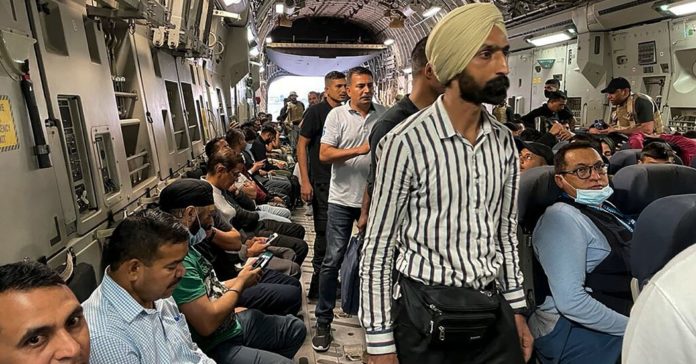India’s government said on Tuesday that it would prioritize the repatriation of Hindus and Sikhs from Afghanistan — a move that drew comparisons to a contentious 2019 citizenship law, enacted under Prime Minister Narendra Modi, that discriminates against Muslims.
The country’s home ministry said it would introduce “emergency visas” to allow Afghans to stay in India for six months. It did not say whether Muslims, who make up the majority of those seeking to leave Afghanistan as the Taliban take over, would also be considered.
“We are in constant touch with the Sikh and Hindu community leaders in Kabul,” S. Jaishankar, India’s external affairs minister, said on Twitter. “Their welfare will get our priority attention.”
That distinction prompted condemnation from some corners.
“Ashamed that the government of India response now is to look at desperate Afghan refugees not as humans fleeing persecution and sure death, but from the view of whether or not they’re Muslim,” Kavita Krishnan, an opposition politician said on Twitter.
India also drew criticism after numerous seats were left empty on an Air Force flight on Tuesday that evacuated Indian citizens and officials from the country’s embassy in Kabul.
Officials in New Delhi have indicated that the country will “stand by” the Afghans who worked closely with the Indian government and its mission in Afghanistan. It is not clear whether their religious status would be a factor in that process.
A spokesman for the ministry of external affairs did not immediately respond to a request for comment.
India has previously granted visas of a longer duration to Afghans fleeing persecution, irrespective of their religion. Many Afghans migrated to India when the Taliban took over about two decades ago. Some have settled in New Delhi, where a shopping district popularly named “Little Kabul” comes alive every evening with stalls selling traditional food.
U.S. and Afghan officials say that India’s archrival, Pakistan, has permitted free movement to Taliban leaders, and that the country continues to serve as a haven where fighters and their families can receive medical care.
But experts say that India is cautiously navigating its relationship with Afghanistan’s new leaders. Indian diplomats recently made efforts to engage with the Taliban as part of the U.S.-led talks in Doha, Qatar.
Some in India have urged their government to engage directly with the Taliban. Vivek Katju, a former Indian ambassador to Afghanistan, told The Wire news outlet last week that the country had become a “bystander” in Afghanistan and that India’s leaders did not know “which way to turn” anymore.
“Engagement with the Taliban should happen,” Mr. Katju said in a telephone interview with The New York Times on Tuesday. “The mechanics of the engagement should be such that it should be open and direct.”
For its part, Pakistan’s leadership has stopped short of hailing the Taliban’s takeover of Afghanistan.
“When you adopt someone’s culture, you believe it to be superior and you end up becoming a slave to it,” Prime Minister Imran Khan said on Monday in a veiled reference to the United States and Western culture. “In Afghanistan, they have broken the shackles of slavery,” Mr. Khan said at an appearance in Islamabad, “but the slavery of the mind does not break away.”
Source : Nytimes












